[Original by Ko IMANAKA, Sudan Project (December 24, 2020); Translated by C. Rosenberg]
In March of 2020, Sudan’s Ministry of Education decided to close all schools nation-wide in order to prevent the spread of COVID-19. In the state of South Kordofan, where JVC operates, the school attendance rate is low and many children, mainly refugees, do not attend formal schools. To address this issue, we started providing supplemental classes in January this year with the goal of giving children who have not attended school enough academic ability to transfer to formal schools. However, with the closure of schools nationally, by the middle of March we were left with no choice but to suspend our supplemental classes.
During the closure, figuring out how to facilitate distance learning for refugees who do not have access to the Internet or television was a process of trial and error. Because the State Ministry of Health prohibited entry to the community for all those besides those raising awareness and providing information about COVID-19, we tried methods such as having teachers within the community give classes in person as well as having those providing information for COVID-19 distribute homework. However, as previously reported, an armed attack on areas where JVC operates forced many residents, including the children, to evacuate.
In September, as the government gradually relaxed COVID-19-related restrictions, we finally received permission to resume operations from the State Ministry of Health and Sudan’s Ministry of Education. Before fully resuming the supplemental classes, we decided to offer a recreational space to the children, who had not been able to study for approximately six months, so they could both review their Arabic and arithmetic as well as enjoy activities such as sports and drawing. Mothers, who evacuated from a village in the Kaduqli suburbs during the armed attack, flooded us with requests to allow their children, who until now did not have access to education, to participate in the JVC classes. We decided to take them in.
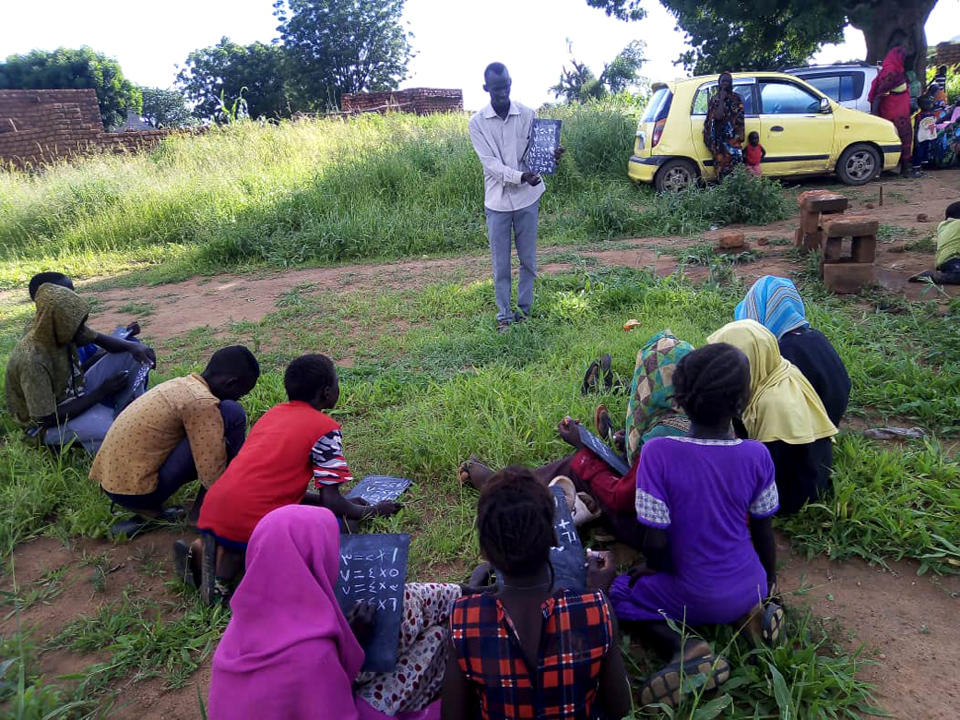
Mr. Mudathir reviewing arithmetic with the children
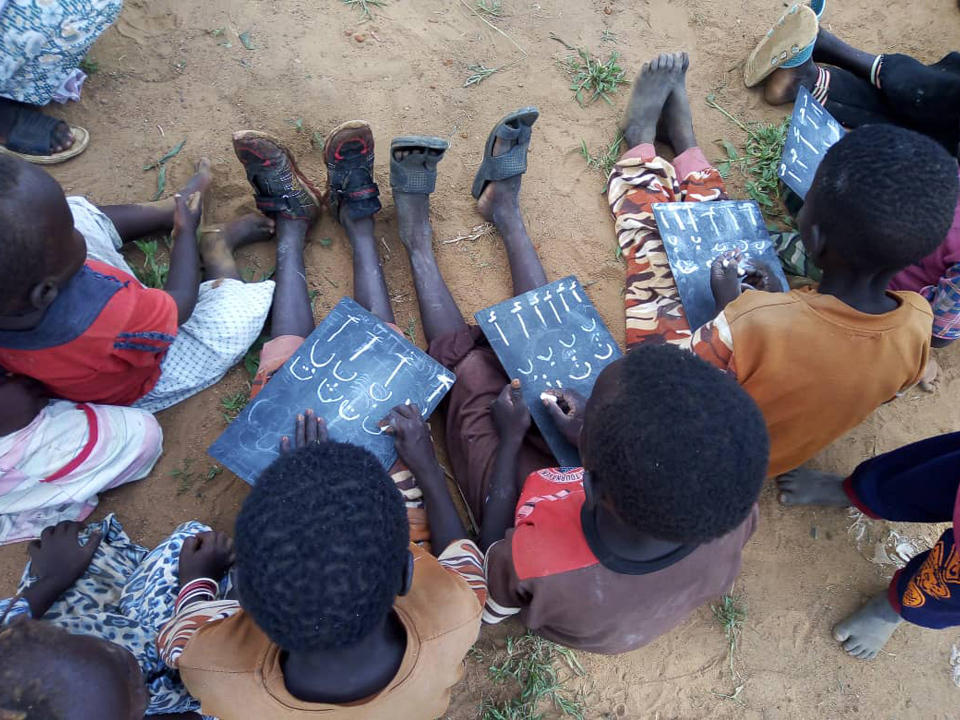
Children reviewing the Arabic alphabet.
Since the rainy season started, returning to studies has not been easy. For some children, responsibilities such as helping with farm work, tending to livestock, and looking after their younger siblings when their parents go to work has made a smooth transition difficult. Even so, with the help of the community, many children were able to resume their studies for the first time in a while.
The girl whose grandfather was killed
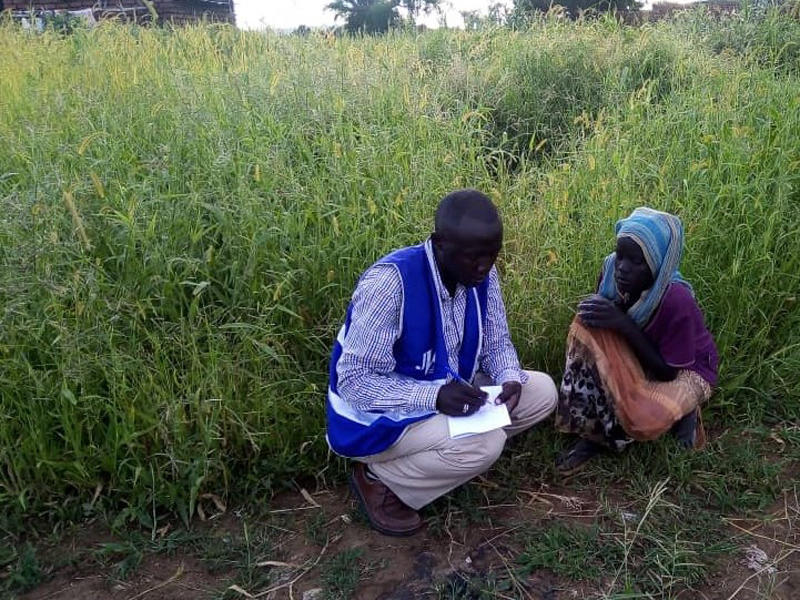
Rihab, a young girl who witnessed the attack in May, told us about her experience of the incident.
“When I heard the bombardment and gunfire, I ran right away, but then I saw my grandfather had died. After his burial, I ran away to the mountains. That night, I found a big tree to sleep under. For the next four days, I stayed at the school, and then started living at a relative’s house. Our house had been completely destroyed.”
We have dispatched social workers and put support systems in place so that children who have undergone such emotional trauma can adapt to psychological care and group activity.
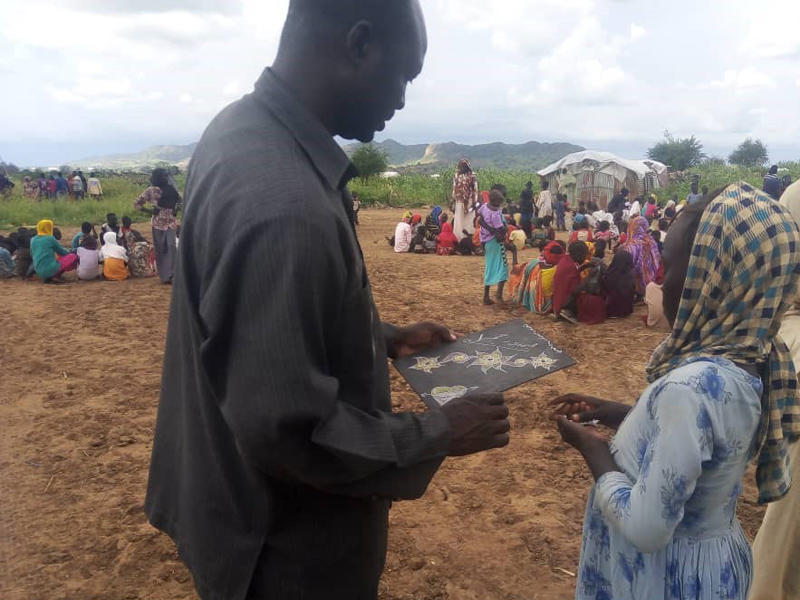
A social worker listening to a girl describe her drawing.
Creative flowers, livestock cattle, and the guns and military vehicles that have blended into the children’s daily lives. These all populate the drawings of the children attending our supplementary school. Please take a close look at what the children have been seeing and feeling in the pictures below.
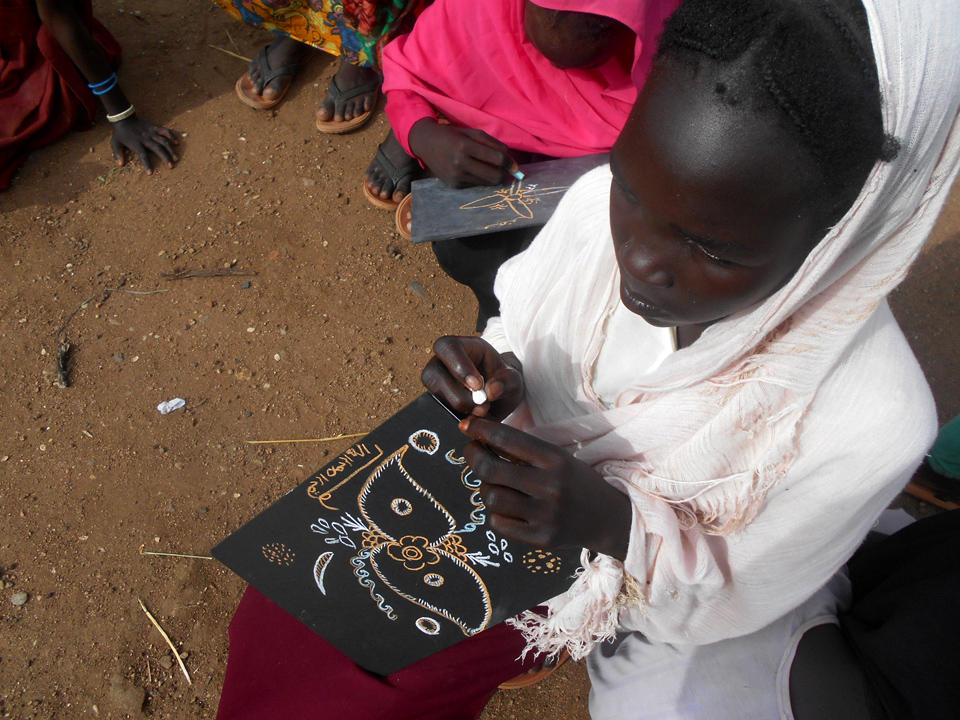
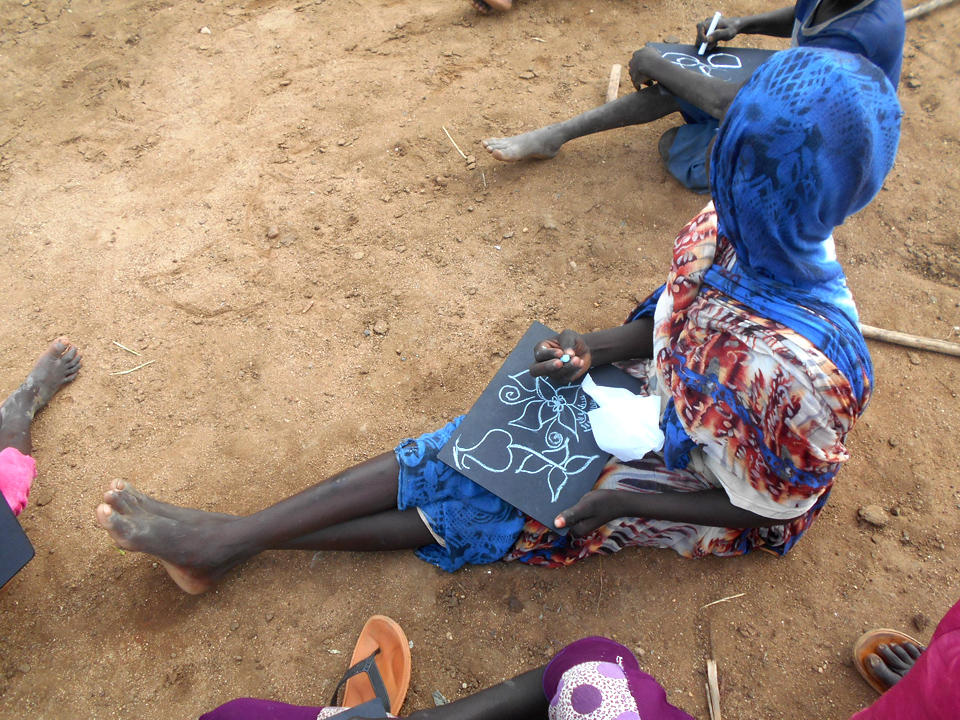
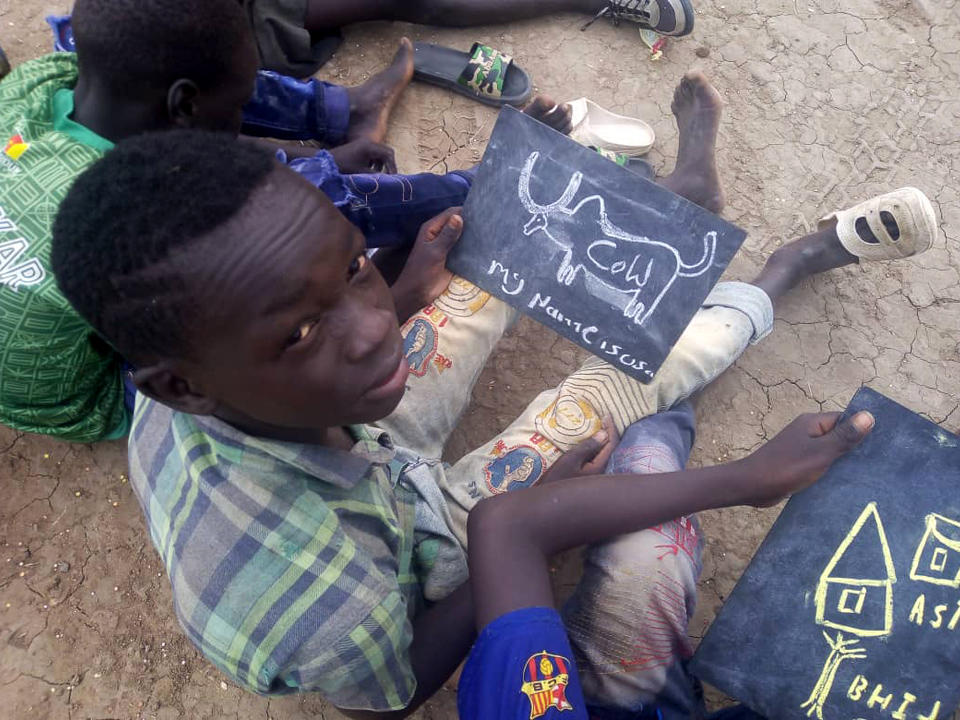
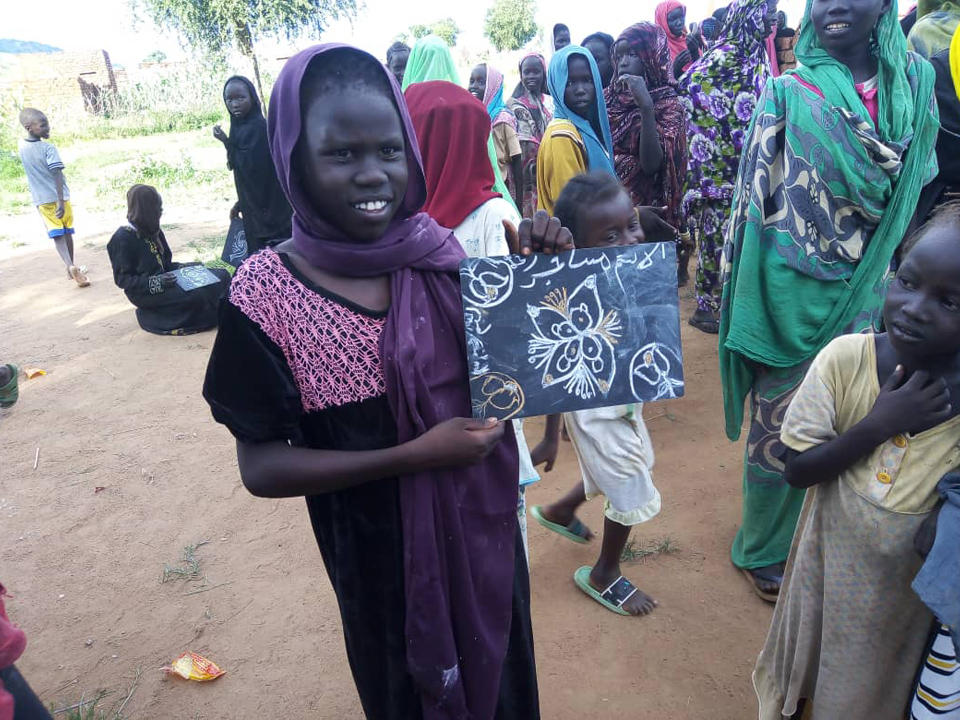
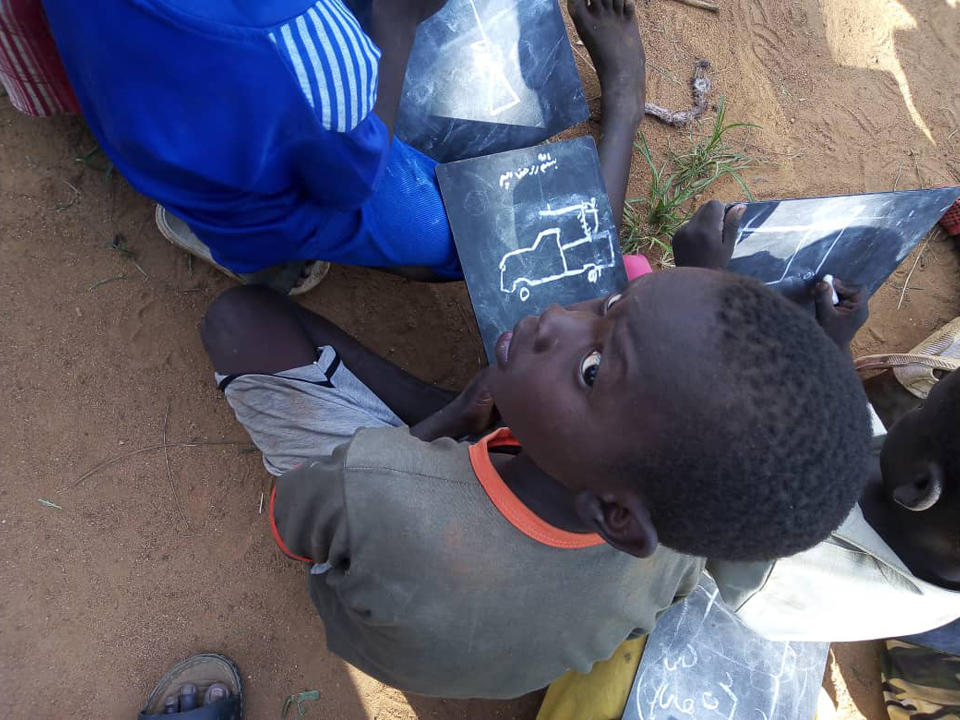
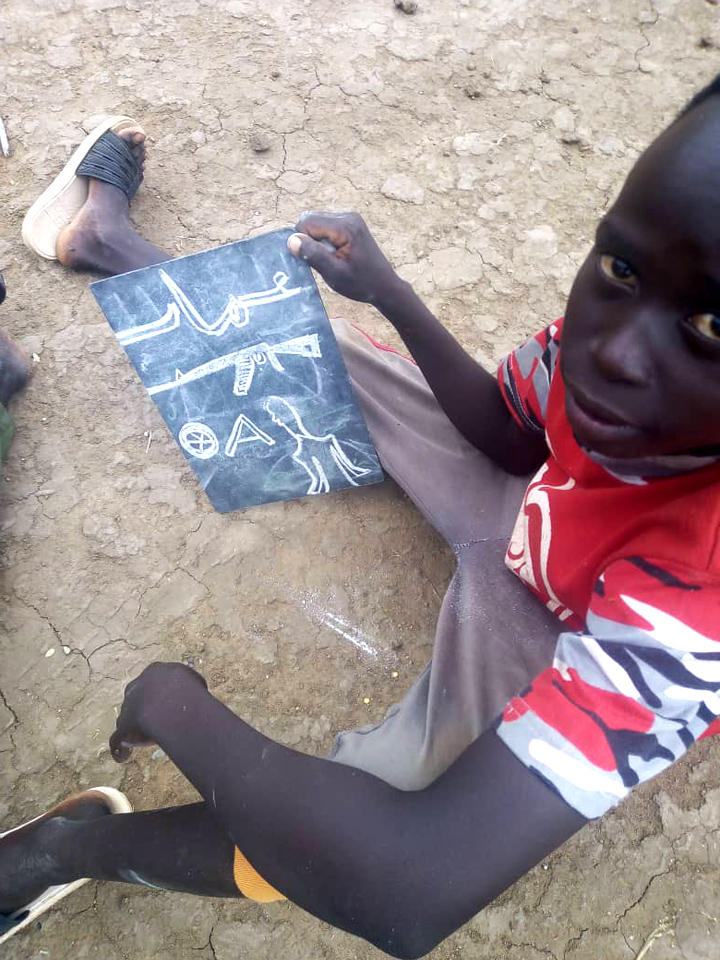
While the regular schools have still not reopened due to repeated extension of school breaks, our supplementary classes, which engage in infection prevention practices such as hand-washing, are scheduled to remain in session until the end of December. Stay tuned for more updates.
Share This: